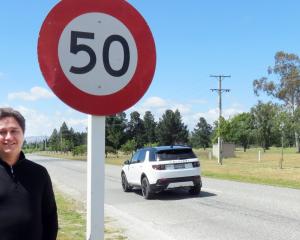
The Otago Polytechnic student grew up rowing in Christchurch where several of her secondary school team-mates were losing their periods from over-training but never fully understood it could be unhealthy.
Even now, at 21, some of her friends are still experiencing issues that could lead to the risk of infertility later in life.
Looking to draw from her own experiences, O’Shannessey is tackling the issues head-on with a project to understand the impact exercise training has on menstrual cycles, including over-training and under-fuelling.
She is rolling out a survey asking female athletes aged 16-25 — from high performance to recreational — what they know about their menstrual cycles in relation to their training performances.
It builds on a previous Massey University study undertaken by Danielle Fletcher, who was happy for the existing survey to be used, along with O’Shannessy’s own questions for her research.
She added a section for people to be interviewed around cycle syncing — a tool to tailor workouts to the four phases of the menstrual cycle to help recovery and energy — and their knowledge of it.
About 53 people had completed the survey so far but she wanted to reach at least 100 people before it closed at the end of October.
Learning what women did, or did not, know about their menstrual cycles during exercise was crucial, and O’Shannessey conceded there was plenty she did not understand before undertaking the project.
Fletcher’s preliminary findings suggested active females had low functional knowledge of their cycles and the associated health outcomes.
"I think it’s cool even just to go into the main knowledge of what females know, because I think that’s an important area," O’Shannessey said.
"I’m quite excited about my survey to see what is kind of known.
"Lots of scientific people say there’s not much ... difference in your different [menstrual] phases and it shouldn’t affect your performance, and then you have some that say it’s good to train in your lower and higher hormone phases.
"There’s a lot of information out there and there’s definitely more studies to be done."
Menstrual cycles still held an unfair stigma and O’Shannessey was keen to explore whether that was still as prevalent or moving in the right direction.
She could not recall any coaches ever discussing periods with her, and she hoped to raise more awareness on the issues facing women.
"There’s been all these studies done on males and how they should train, so it would be cool to just get a bit more awareness, see if this gets more attention and maybe this could be part of education in schools."
Coaches and support staff could also be given the tools to discuss the topic with female athletes whenever they signed up for a new sport, she said.
Anyone who completes the survey will receive resource information, created by Fletcher, and additional information on cycle syncing from O’Shannessey.
The survey is open until the end of October. She hoped to share her findings with the Massey University team to be collated with a large-scale study to be published next year.











